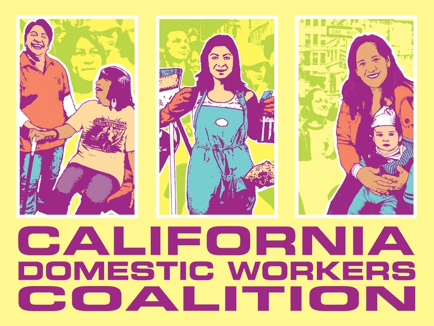Identifying Human Trafficking in Domestic Work and Residential Care Facilities
The Trafficking Victims Protections Act defines labor trafficking as, “the obtaining of a person for labor through the use of force, fraud, or coercion.” Survivors of human trafficking can be of any race, ethnicity, age or gender.
How are domestic workers and board and care home workers trafficked?
- Some trafficking survivors come to the United States on official work visas that are tied to the diplomats, international officials, or private recruiters who have misled or defrauded them.
- Some are undocumented workers whose employers threaten that the police will arrest or deport them if they try to complain or escape.
- Fraud, emotional abuse, threats to family members, and immigration-based threats may be used by traffickers to control their victims. Most are not kidnapped, and some survivors enter work arrangements willingly, only to be trafficked later in the course of their employment.
- Domestic workers are particularly vulnerable because they are excluded from many basic labor protections and work behind closed doors in private households.
Signs that you or someone you know may have been trafficked:
- Debt to the employer for transportation or other fees that is being paid off through labor.
- Threats to the worker’s family at home, immigration-related threats.
- Verbal, emotional, physical, or sexual abuse.
- Passport or visa has been withheld or stolen.
- No form of identification (state ID, social security card, or vehicle license).
- Being kept in house, unable to leave work or residence; only seen out in public with someone else.
- Phone calls, mail, and communication monitored by employer.
- Lack of pay or severely low pay.
- Excessive working hours without breaks.
- False or switched contracts or change of promised job duties (being told you will be doing some type of work and then being asked to do another job).
- Not in control of one’s money.
The information above is from The Asian Pacific Islander Human Trafficking Task Force of the Asian Pacific Policy and Planning Council and the National Domestic Workers Alliance’s Beyond Survival Campaign.
You may be a survivor of human or labor trafficking if you were forced into working against your will. Resources that you can be connected to include:
- Housing
- Food and other basic needs
- Medical care
- Mental health services and counseling
- Case management
- Legal assistance
- Transportation
- Translation and interpretation
- English language classes
- Job skills training
- Immigration relief for you and your family (T Visa)
- T nonimmigrant status is a temporary immigration benefit that enables certain victims of a severe form of human trafficking to remain in the United States for up to 4 years if they have assisted law enforcement in an investigation or prosecution of human trafficking. T nonimmigrant status is also available for certain qualifying family members of trafficking victims.
- The T nonimmigrant visa is valid for 4 years and a visa holder may be eligible to apply for permanent residence (Green Card) after 3 years in a T nonimmigrant status.
